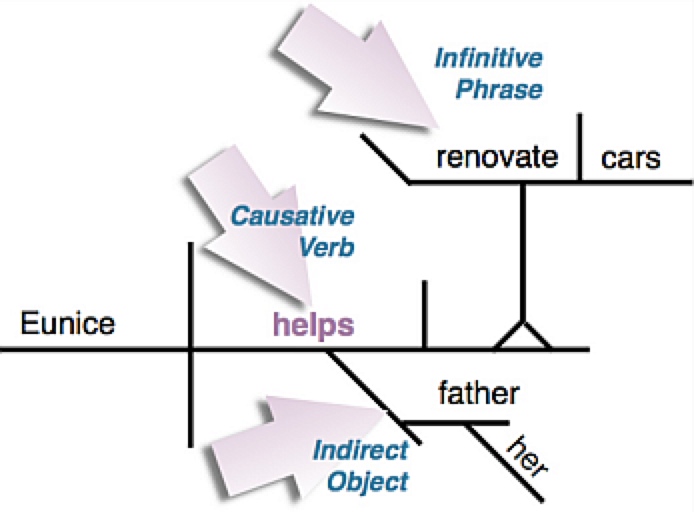
Karl J Sherlock
Associate Professor, English
Email: karl.sherlock@gcccd.edu
Phone: 619-644-7871

Causative verbs designate the action necessary to cause another action to happen:
Another way of looking at causative verbs is that they are an action that brings about another activity by way of an indirect object: a verb that causes a verbal. Note in the following sentence how the verb "made" causes the verb "do" to happen, by way of "her":

Most are followed by an object (noun or pronoun) followed by an infinitive (see "Verbals"):

Diagramming a causative verb is no different from diagramming any other verb with an indirect object: the indirect object where an implied prepositional object would ordinarily go under the verb (but without any preposition, of course). The noun infinitive phrase, regardless if the infinitive particle is included, goes where the direct object would go, elevated as noun verbal phrases are:

Karl J Sherlock
Associate Professor, English
Email: karl.sherlock@gcccd.edu
Phone: 619-644-7871

8800 Grossmont College Drive
El Cajon, California 92020
619-644-7000
Accessibility
Social Media Accounts